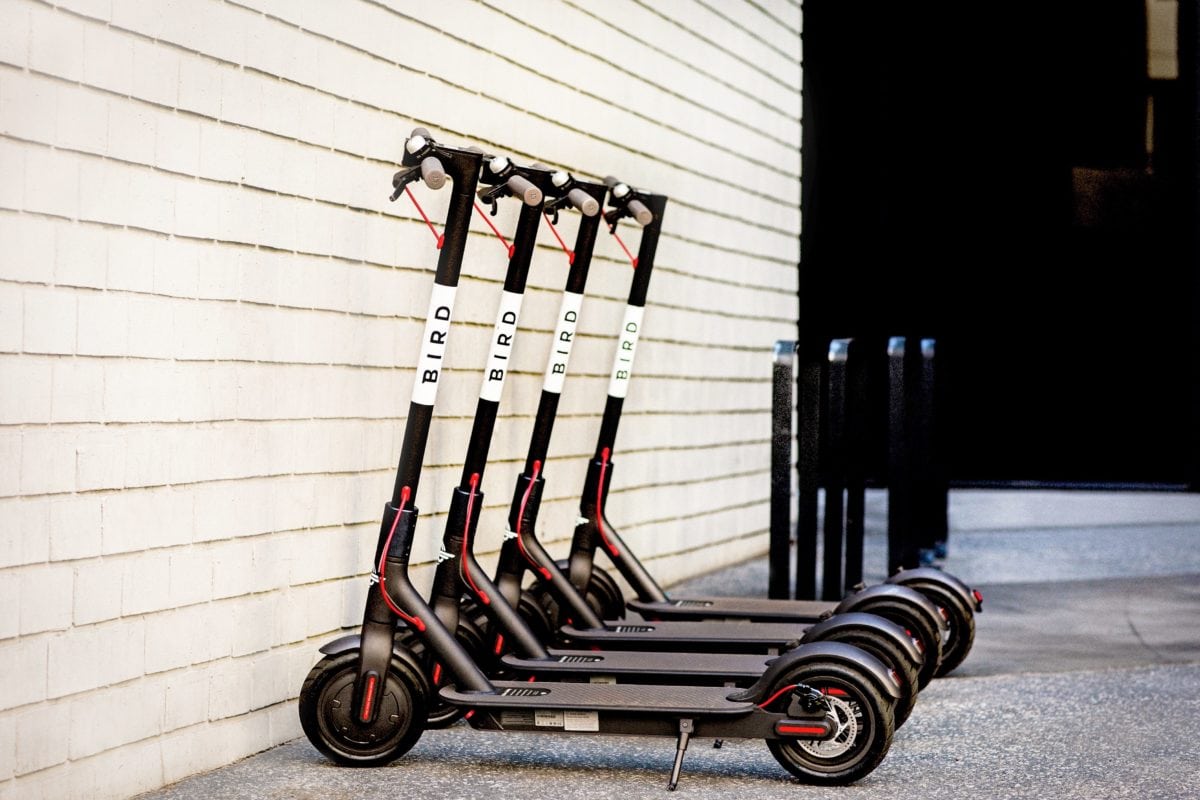City leaders announced a shift in Baltimore’s bikeshare program at a Wednesday morning news conference inside City Hall.
The city is starting a pilot program for dockless options, and in turn ending the station-based bikeshare program that launched in 2016.
The move creates an official framework for e-scooter companies to operate in the city. Bird started operations here earlier this summer. While plenty of razor-like scooters have been buzzing around downtown sidewalks, there were questions about regulations for the new transportation option under city law. With the new pilot program, Scooters from Lime, another fast-growing dockless company, is also entering Baltimore. Each company will be able to operate up to 1,000 scooters, according to Baltimore Director of Transportation Michelle Pourciau. The city is also looking to open up the program to dockless bicycle companies in the future.
Hello #Baltimore, and thank you @MayorPugh50 & @BmoreCityDOT.
Away we go! pic.twitter.com/Q5dzWEUsS7
— Lime (@limebike) August 15, 2018
Dockless technology allows users to locate and unlock vehicles via app. When completed, the vehicles can be left near a rider’s destination, rather than at a specific station.
The dockless program was pitched as a way to open up access for more Baltimoreans. Bikemore Executive Director Liz Cornish said the dockless program would open up access to transportation options in more parts of the city.
“One of the things that I’m most proud in working with the city is that the city of Baltimore is leading the way in terms of how cities are developing these pilot programs, and one of those ways is to insure that there are more bikes and scooters in neighborhoods that need transportation options the most,” Cornish said.
The pilot program requires vendors to place bikes and scooters in neighborhoods where 40 percent of households make $25,000 or less a year, Cornish said. “We know that bikeshare in its existing form had its challenges and one of the challenges with a docked system is its ability to scale,” Cornish said.
The pilot partnership mandates placement of dockless vehicles in Community Statistical Areas where >40% of households earn under $25,000 a year. The CSAs are outlined in the permit: pic.twitter.com/DFmBAxEYLM
— Bikemore (@bikemorebmore) August 15, 2018
In the meantime, the Baltimore Bike Share will come to an end, with bikes and stations cleared by Friday. The program launched in 2016 when the city announced a $2.36 million contract with Bewegen. Along the way, the program faced issues keeping bikes available amid theft and maintenance issues. It led program officials to hit pause last fall. Despite returning in December with more bikes, problems keeping stations filled once again emerged. A report published in Baltimore Fishbowl on July 25 warned of another impending failure, finding declines in inventory as problems with equipment were continuing.
Pourciau acknowledged keeping enough bikes available in each location was an issue, but didn’t rule out bringing back the docked bikeshare station. It wouldn’t be unprecedented, as D.C. is currently running a dockless pilot alongside an established docked program.
“We need to back up and reevaluate where we are,” she said. “We’re so excited that we have an alternate that’s come online immediately, and over the next few months we’ll reassess having dockless and docked,” she said.
In recent months, the city’s transportation department also began a partnership with Lyft in which the ridesharing company offered branded transportation hubs at highly-trafficked bikeshare stations. Lyft said it would look to rework the partnership.
Lyft remains committed to helping expand shared, sustainable transportation options in Baltimore and ensuring everyone can get where they’re going affordably and reliably,” Lyft Communications Manager Campbell said in a statement. “We are excited about the city’s continued focus on bike and scooter sharing and what it means for Baltimore residents and visitors. We will also be examining options to repurpose the partnership investment into other initiatives that support improved mobility for Baltimore, such as improved bike lanes or enhanced multimodal hubs at the current bike share locations. We look forward to continuing discussions on the best transportation for the city.”
Before you go...
Please consider supporting Technical.ly to keep our independent journalism strong. Unlike most business-focused media outlets, we don’t have a paywall. Instead, we count on your personal and organizational support.
Join our growing Slack community
Join 5,000 tech professionals and entrepreneurs in our community Slack today!

The person charged in the UnitedHealthcare CEO shooting had a ton of tech connections

The looming TikTok ban doesn’t strike financial fear into the hearts of creators — it’s community they’re worried about

Where are the country’s most vibrant tech and startup communities?


